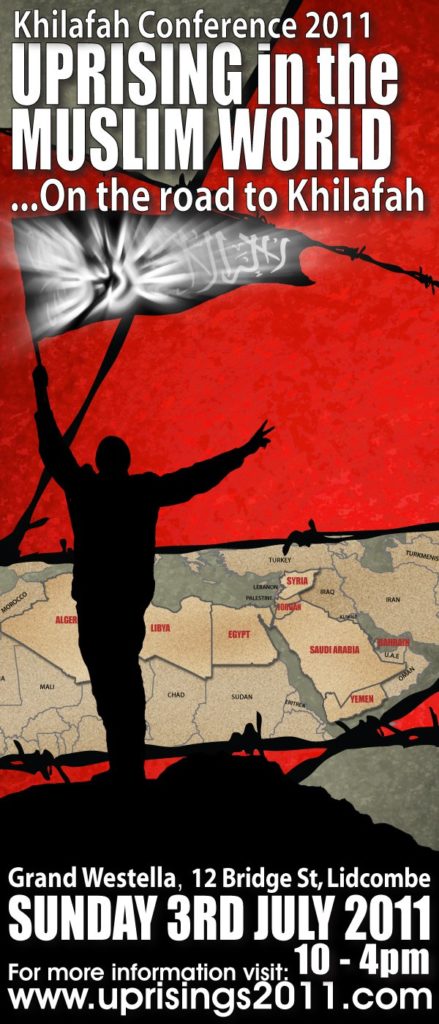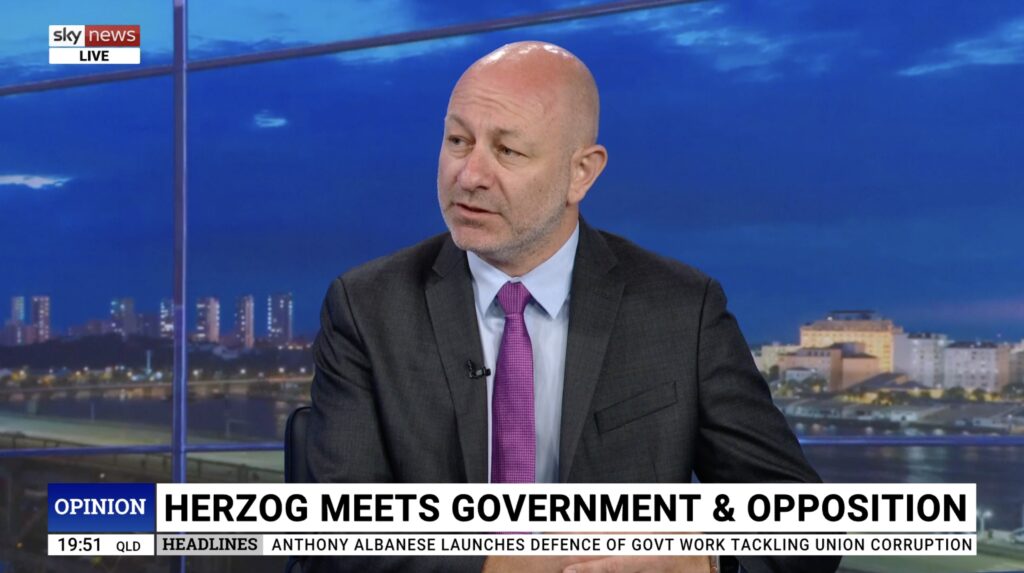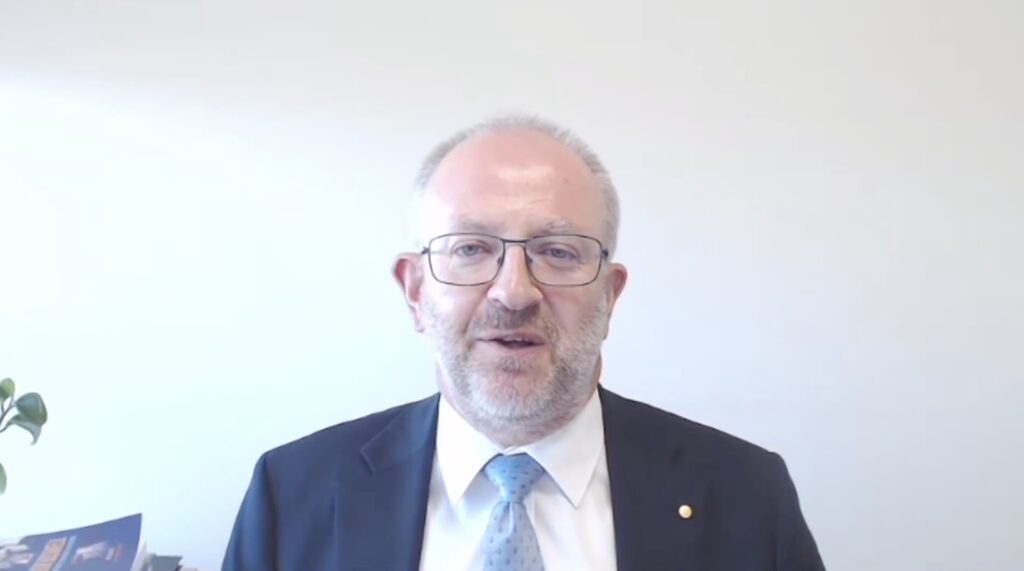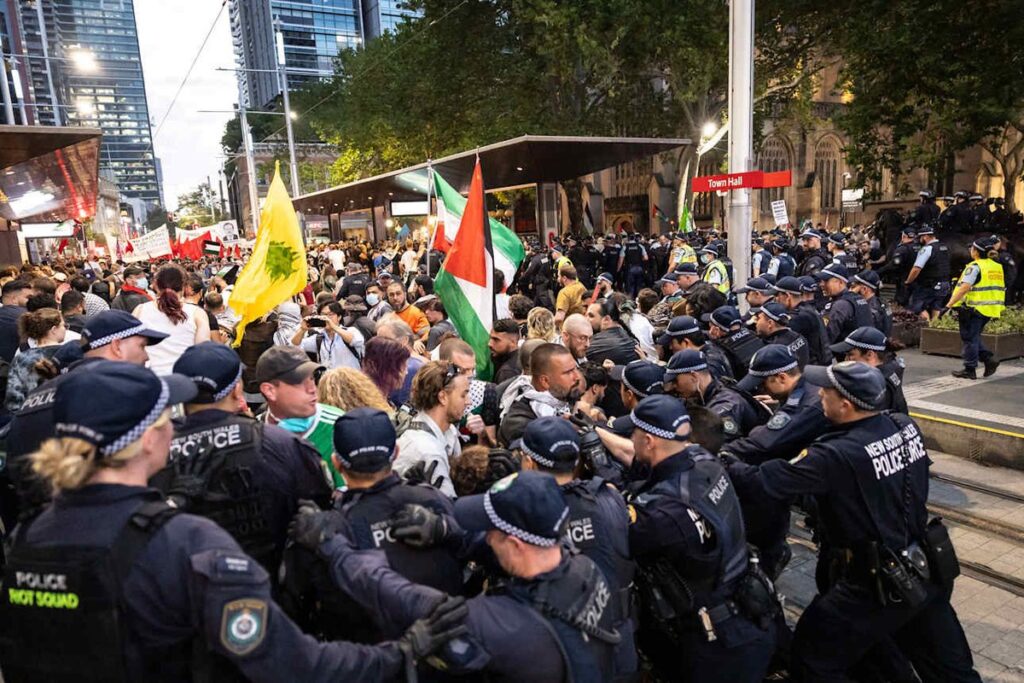UPDATES
Time for another look at banning Hizb-ut-Tahrir?
July 4, 2011 | Sharyn Mittelman

Concerns about the operations in Australia of radical Islamist group Hizb ut Tahrir’s (HT) should be renewed yet again following a conference hosted by the group on July 3, at Lidcombe, which drew about 1000 people. The fundamentalist group called for the establishment of a caliphate stretching from the Middle East to Indonesia.
The Sydney Morning Herald reported that at the conference, Muslims in Australia were urged to join the uprisings that have toppled regimes across the Middle East, to renounce moderate forms of the religion and to reject democracy.
Talks included ”The Muslim World in the 20th century: Totalitarian Western oppression” and ”Western endeavours to frustrate the Islamic revival”.
While the group says that have a stance against violence, such claims are contradicted by its spokesperson Uthman Badar, who said that Muslims are obliged to engage in armed resistance against Israel and against the presence of foreign troops in Iraq and Afghanistan. ”If it [the land] is occupied, they [Muslims] have a right and a duty to resist that occupation”.
When asked if that meant the targeting of Australian troops, Mr Badar said, ”I would not go beyond saying that a military occupation is rightly resisted militarily.”
”The role of the Australian government has … been intrusive and exploitative.”
The keynote speaker, Dr Mohammad Jeelani, said the West had decided to ”plant a cancer in the Muslim world”, and that cancer was the state of Israel.
The group openly rejects democratic government and tells Muslims in Australia to boycott elections.
Ironically it is democracy that allows HT to spread its fundamentalist views.
So it seems reasonable to take another look at the case that HT should be banned in Australia, as it is in Germany and other countries. Meanwhile, the British government may also be re-examining a prohibition after PM David Cameron promised to ban the group before the last the election.
In Melanie Phillips’ article in the Australian last year (6/7/2010) ‘Jihadist group a threat to us all’, she writes that Australia and Britain have been unsuccessful in banning HT because it has been able to conceal its links to terror. But she states that given “HT members in other countries have been involved in terrorism, and whatever its protestations to the contrary, the organisation actively promotes and encourages violence. And since it regards itself as a global movement that does not recognise national boundaries, the comforting fiction that it presents no threat to Australia is particularly otiose.”
According to Philips:
- In Russia, HT has been banned since 2003, when the leaders of its Moscow cell were arrested in possession of plastic explosives, grenades, TNT and detonators. In August 2005, nine members of HT in Russia were convicted of illegal possession of weapons and incitement to racial and religious hatred.
- In August 2002, HT in Denmark reportedly offered the equivalent of pound stg. 25,000 to anyone who killed a prominent Danish Jew, producing a hit list of between 15 and 25 leading members of Denmark’s Jewish community. The leader of HT in Denmark, Fadi Ahmad Abdel Latif, was convicted of incitement to racial hatred for distributing a leaflet urging people to “kill them, kill the Jews wherever you find them”.
- In 2009 HT was banned in Bangladesh after the government said it feared the organisation posed “a threat to peaceful life”.
- HT calls on Muslims to fight Jews everywhere, and engages in vicious anti-Jew invective. Last month, HT in Bangladesh issued a press release to advertise a demonstration about the Gaza flotilla which said: “O Muslim armies! Teach the Jews a lesson after which they will need no further lessons. March forth to fight them, eradicate their entity and purify the earth of their filth.”
- HT also explicitly promotes violence in Israel, Afghanistan and Iraq, and also calls on Muslims everywhere to engage in violent jihad.
Phillips writes “Democratic countries such as Britain and Australia are rightly very reluctant to clamp down on political expression. But the decision that nothing can be done to ban HT’s conveyor belt to terror is disastrously naive.”
Tags: Australasia, Indonesia





